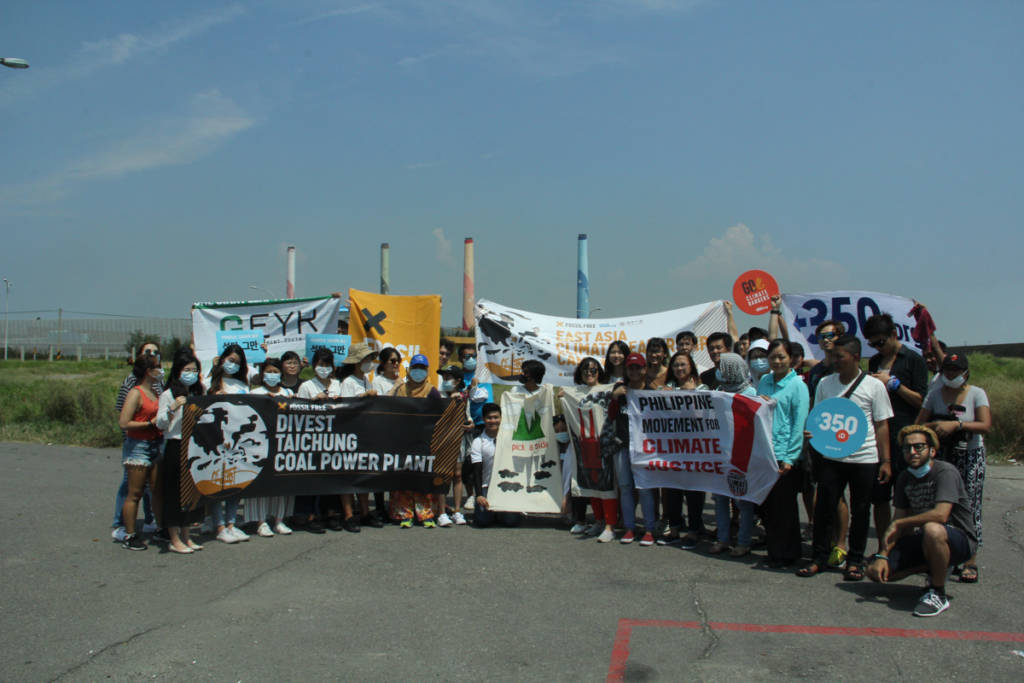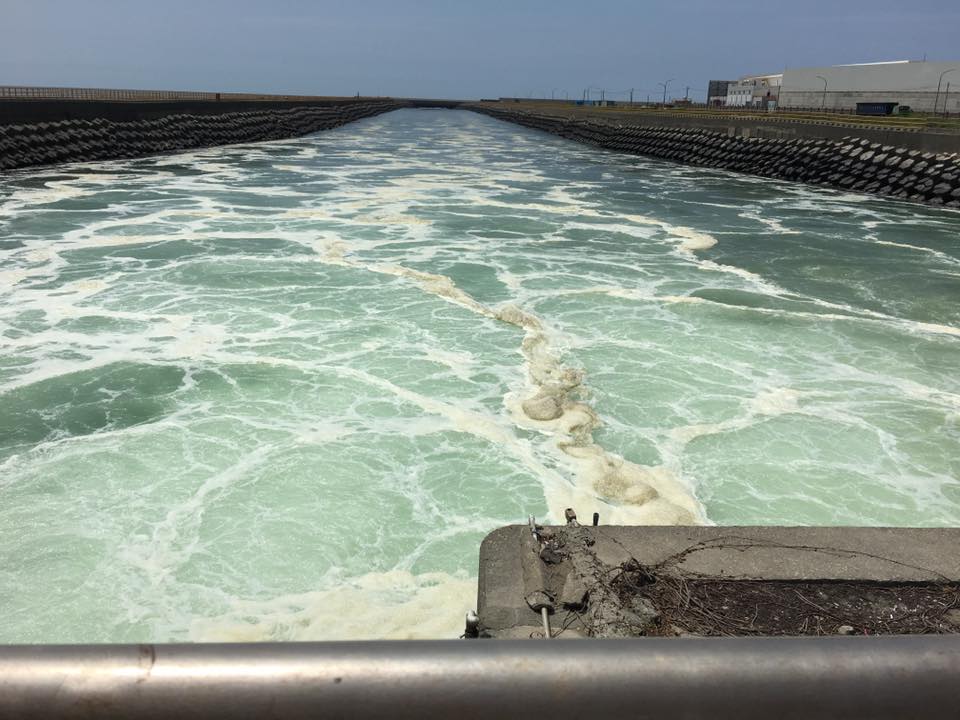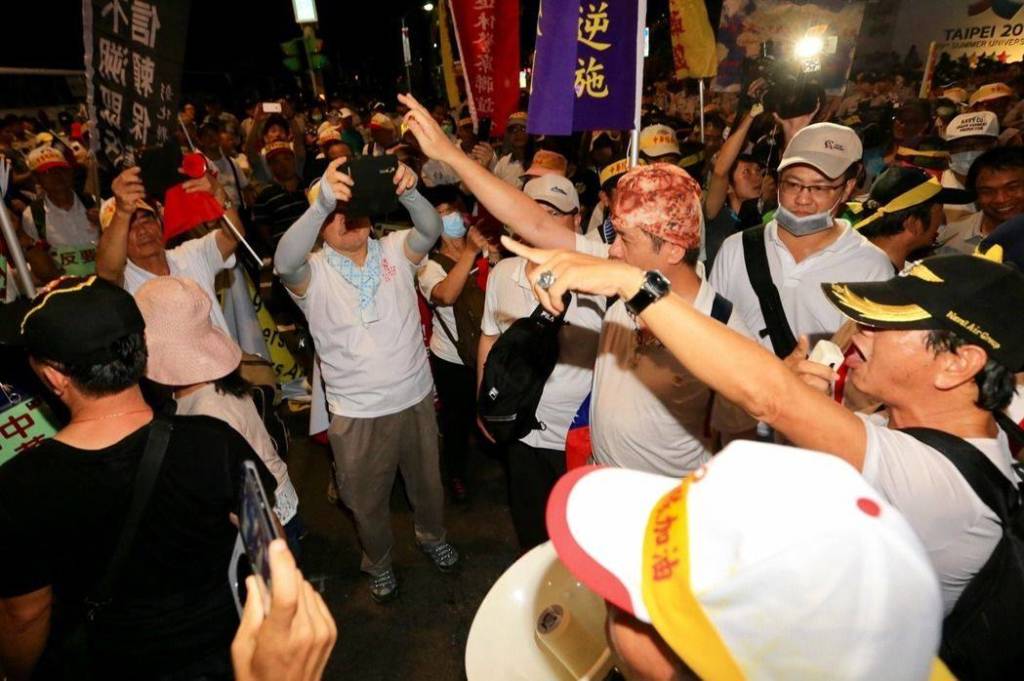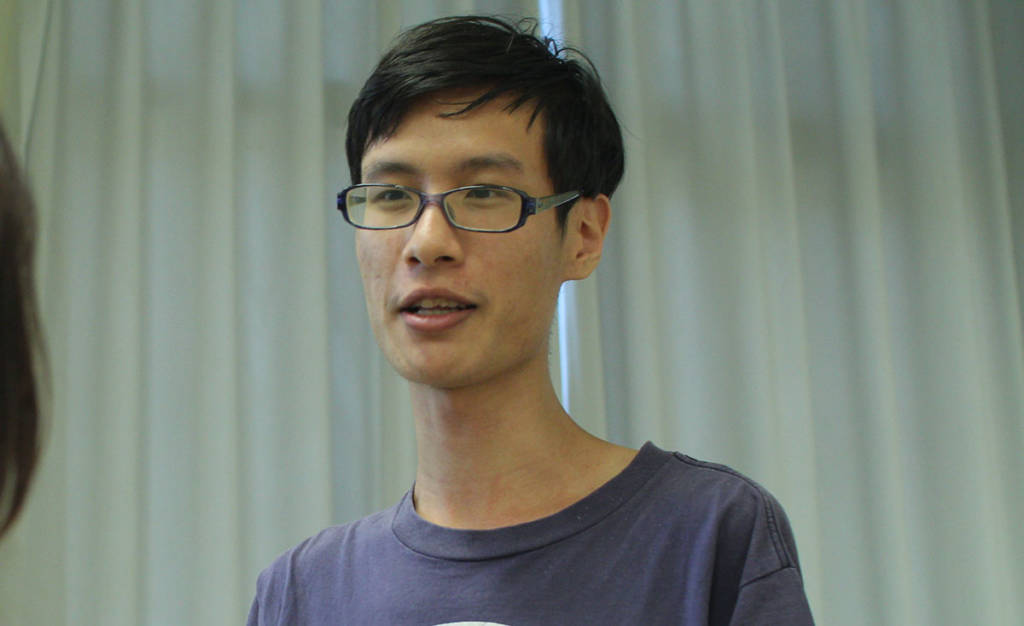By Tony Yen
On August 19, 2017, the Universiade began at Taipei; athletics from all over the world came to Taiwan for sports competition. At the same time, I happened to attend an international climate activists’ camp hosted by 350 Taiwan in Taichung, the third East Asia Climate Leader Camp (EACLC).
The invited nations included Japan, South Korea, China, Hong Kong, Philippine, Vietnam, and Indonesia. Counting the Taiwanese in, there are eight nations where climate activists came from. After a deep talk we realized that while the process of Energiewende within each nation may be similar or related, detailed differences still occur among each other. I therefore consider it a good way to dig deeper into the Energiewende in East Asia via a combination of showing the experience exchange of participants during the camp and how each of the government plans to achieve its goal towards transition. This is the initial idea behind this series of journalism.

If you do this in Vietnam, you might get arrested >”< (Photo Credit: Hong Hoang)
Background Analysis of the Attendees
Among the participants, the ones from southeast Asia mostly had a great amount of experience in first hand organization work and perhaps were veterans who even fight alongside with locals living near coal power plants. By contrast representatives from Japan were mostly fresh to the issue. As for Taiwan, 350 invited homemaker alliance Taichung branch and other local groups such as Clean Air Taichung to participate.
In addition, apart from the movement organizers or environmental group participants normally recognized in such kind of event, there was a mech-electrical engineering professor from Indonesia who brought her freshman student alongside, and also a Vietnamese policy researcher who works for the policy-oriented environmental group Green ID Vietnam. I actually admired the professor and the university student from Indonesia a lot. In Taiwan, it is already difficult to find an engineering professor who supports environment movements, not to mention a professor who is willing to sacrifice her precious research time to attend a camp which cannot boost the international competitiveness of the school.
It can be said that the participants from Vietnam, the Philippines and Indonesia face obvious pollution and oppression from the state, while in contrast the representatives from Taiwan, South Korea and Japan may find it hard to directly feel such blunt violence (of course, this may also be due to the time span of a person’s involvement in the movement). One of the moments I remember the most was when a participant from the Philippines told me on the way back to the airport that he actually hadn’t had the appetite to join the talent show on the previous night (from what I heard, a teenager was mistakenly shot because of the war on drugs, and the entire nation bursted into anger). On the other hand, it was something quite unimaginable for us in Taiwan, when a Vietnamese participant shared her experience of being house arrested during the Formosa steel factory campaign, while companions from 350 were also being held by the police because they took pictures with their banners in front of a constructing coal power plant simultaneously.
The obvious differences brought by political structures among the nations can be found in deeper places. The Vietnamese participant who joined the climate movement for more than 20 years has a teenager experience of admiration towards the socialist motherland of Soviet Union, whereas the governments of Indonesia, Philippine, Taiwan, and South Korea have a dark history of dictatorial rule and civilian massacring under the name of anti-communism. It is under such historical context why during the camp people mocked the communist party while they also played the Internationale with the guitar in the meantime.
Highlights of the Camp: Tour to Taichung Coal Power Plant and Experience Exchange
The field trip during the camp was to visit Taichung coal power plant (once the largest coal plant in the world, with a total capacity of almost 6000 MW) and the industrial zone of coastal Chunghwa (where the coal cinder produced by Taichung coal power plant is dumped). Many participants envied how no visible smoke was coming out from the chimney. Due to appropriate process, the waste air coming out rarely condenses water vapor in Taiwan in the summer. Another thing impressed by a Vietnamese participant was how a buffer zone was set up between the plant and the residence area. According to her, some older coal plants still emit black smoke (an indication that black carbon is not dealt properly) in Vietnam, and no buffer zone is set; the plants are directly next to civilian houses.
Nevertheless, the attendees still witnessed the pollution situation first hand when they arrived at the wastewater disposal pipe of the plant. The chemicals added into the wastewater neutralize most of the slag, heavy metals, and the pH anomaly of the water and thus reduce the pollution to the surrounding ocean, but they themselves smell and cause a bizarre-looking muddy color near the pipe. Such view shocked many participants.

The wastewater pipe for Taichung coal power plant (Photo credit: Umika Yukisita)
Nevertheless, the attendees still witnessed the pollution situation first hand when they arrived at the wastewater disposal pipe of the plant. The chemicals added into the wastewater neutralize most of the slag, heavy metals, and the pH anomaly of the water and thus reduce the pollution to the surrounding ocean, but they themselves smell and cause a bizarre-looking muddy color near the pipe. Such view shocked many participants.
We also stayed a while near the coal storage facility. The Taichung coal power plant and the dragon steel factory are the two biggest fixed air pollutant emitter in Taichung; the storage facility besides the coal port supplies the most important resource needed in both of the emitters. The trucks which transport the coal cinder out of the area frequently passed by in front of us, and left a chalk or two of the ashes on the ground from time to time, which we found to be everywhere nearby. For the locals, the dust (PM10) due to the coal cinder and storage facility is what mostly disturbing their daily life, and therefore they have been urging for a better dust protection measure taken by the facility and the trucks.
Visiting the industrial zone of coastal Chunghwa was another interesting experience. There were many oyster farmers and amateur fishermen at the beach, even though the industrial zone is just nearby. They knew nothing about the fact that where they stood was made out partly of coal cinder, and of course were uninformed of the worries environmental groups expressed on the potential pollution steel slag or coal cinder recycling might cause.
Apart from the field trip and interviewing local environmental groups, there was also a section for the participants to exchange experience. A fair was held, where different groups drew their posters and told the stories of them to those who stopped to listen.
I was invited to this camp because of my involvement of several proposals regarding a sustainable campus at National Taiwan University during the last school year, and that was what I mainly shared. In the half hour event only a Vietnamese participant and a Hong-Kongnese participant came to me. What surprised me was that state-owned universities in Hong Kong don’t have the obligation to disclose their budget details, meaning that 350 Hong Kong are having a hard time finding data when they try to examine the investment situation of their schools. I was glad that experience from Taiwan became something they could bring back and compare with.
Unintended Episodes: The Power Limit, a Protest over Taichung Plant, and a Protest during the opening of the Universiade
There were several significant events occurred in Taiwan just before or during the camp, which the participants reacted interestingly and are therefore worthy of mention.

The anti-reformation groups boycotting the openings of Universiade (Photo from UDN)
The first is of course the nationwide power limit occurred on 15th of August, and the voices attempting to connect the ill-management-caused power limit with the government’s decision to phase out nuclear. Among the event, one thing troubles the foreign participants the most: why did the homemaker alliance keep getting sexual-harassing insult from the net trolls because of its anti-nuclear position? It however echoed what a Philippine participant said in the opening section of the camp, which emphasized how environmental movements are highly connected with gender, race and religious equality movements. “I hope that everyone, no matter your nationality, your race, your gender identity or your religion, can find it comfortable to express yourself here.” was about the thing he said that night.
Meanwhile, a protest right after the power limit on the Taichung coal power plant organized by Yen (顏寬恆), one of the head family members of the local gangster, also caused great discussion in the camp. “Why does the gangster support the local’s stance against the plant?” A participant from Indonesia asked me, while I tried my best to explain to her the local politics in Taiwan, and how local and central governments sometimes wrestle each other.
As for the news of anti-pension reformation group boycotting the opening of Universiade, the instant reaction of the participants was unbelievably cheering, applauding and discussing enthusiastically how the calls for fossil fuel divestment can be made similar during the 2020 Tokyo Olympics.
But should a Taiwanese think deeper, s/he should realize that anti-pension reformation is an issue commonly connected with other progressive movements abroad, and the means the group has taken shouldn’t be considered inappropriate for an organizer. Of course the issue is too complicated, so I gave up explaining how the pension of government agents used to represent a privilege system given by a party-ruled state; neither did I told them what reactionary stances these anti-reformists have taken on other issues, causing their loss of support among the progressives. Still, I found some other Taiwanese somehow overreacted when directly assuming the boycott as a national disgrace and shouldn’t let the outsiders know too much about it.

Tony Yen is a student in Taiwan who has just been accepted in the master program of Renewable Energy Engineering and Management in University of Freiburg.
